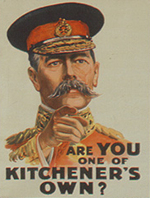24 November 2006
The Globe and Mail
A1
GLORIA GALLOWAY
With reports from Campbell Clark, Bill Curry, Daniel Leblanc, Rhéal Séguin and John Ibbitson
"... Mr. Harper's immediate reaction was that the Bloc was trying to divide Quebeckers — and the federalist political parties.
But Conservatives said the Prime Minister believes the separatists made a historic error in asking Parliament to define the status of Quebeckers. Separatists have always said “We'll take our own destiny in our own hands and we don't need Ottawa to tell us what to do” — to Mr. Harper's mind, the Bloc motion marked the first time the separatists had indirectly admitted that Ottawa has a say in Quebec's future.
The Prime Minister called Bloc Leader Gilles Duceppe and asked him whether this was a course of action he truly wanted to take. Mr. Duceppe didn't back down.
Insiders said there was no discussion in those first hours of the problems that the motion could create for the opposition Liberals, already embroiled in an internecine dispute over the matter. Instead, they said, Mr. Harper was convinced it was his job to prevent divisions within the country.
He and his staff drafted a motion identical to the one to be put forward by the Bloc Québécois but for four critical words added on to the end, reading: “That this House recognize that the Québécois form a nation within a united Canada.”
Some Conservatives gave credit for the idea to Mr. Soudas, a young Quebecker of Greek descent. But Mr. Soudas refused to acknowledge that he played so crucial a part.
“There is a team around the Prime Minister and we all played an important role,” he said yesterday. “But, ultimately, at the end of the day, advisers can give 101 pieces of advice but it's the person who decides that matters..”
Mr. Harper met with NDP Leader Jack Layton and Liberal Leader Bill Graham on Tuesday evening to ask if they would form a united front against the Bloc.
During the brief meeting with Mr. Layton, the NDP Leader said his party has recognized Quebec as a nation for many years. Mr. Harper left believing that the New Democrats would be onside.
Mr. Graham was less clear. Conservatives suggest that was due to the divisions within his party. Liberal sources say the meeting was simply intended as a heads-up.
“It was something to the effect of, ‘This could turn into a Gong Show, and I'm going to try to put something together,' ” one Liberal said.
Later that evening, the Prime Minister's staff ran the motion past Stéphane Dion, the former intergovernmental affairs minister and author of the Clarity Act. He was the only Liberal leadership candidate the Conservatives consulted.
Wednesday, it was time to face the rank and file at caucus meetings. The Conservatives said the Prime Minister had little trouble consolidating support.
“There wasn't really any indication that people would be afraid of doing this, simply because they trust the Prime Minister . . . and they know that given his background, there wouldn't be any opening up of the Constitution or trying to lead down that road,” caucus chair Rahim Jaffer said.
The young Quebec caucus members were particularly moved by what the Prime Minister was saying, Ms. LeBreton said.
“At one point, a couple of members kind of jokingly suggested that they agree with what he is doing but is there not some way we can delay this because they were so enjoying watching the Liberals wrestle with this,” she said.
“But he simply said to them, ‘Look, this is about our country and the unity of our country and it's far more important than scoring political points on the backs of the Liberal Party'. . . That's when I said to myself, I am witnessing a special moment in history.”
Meanwhile, across the corridor of the Centre Block, the Liberal caucus was also meeting.
About 10 minutes before it ended, Mr. Graham and Mr. Harper had a tête-à-tête in the rear hallway. Mr. Harper told the Liberal Leader about the motion. Mr. Graham listened, but did not offer a commitment. Nor did he bring it back to his caucus. Instead, he consulted some “key” MPs, and decided to sign on.
Inside Mr. Graham's office, there were concerns about the impact the motion could have on the leadership race — in particular, the feeling that second-place Bob Rae, who has criticized Mr. Ignatieff on the nation issue, might feel sideswiped. But Mr. Harper had given Mr. Graham a yes or no choice.
The NDP, meanwhile, says it was being left in the dark. Mr. Layton's office was told that the Prime Minister would make a statement in the House of Commons at 3 p.m. but the topic would be “money related.” Then Canadian Press began to report that Mr. Harper would be talking about the Bloc motion.
Partial texts of Mr. Harper's statement were given to the opposition leaders about 20 minutes before he stood in the House to table his motion. In an eloquent address, he talked about Canada as being the greatest country in the world — one that has been forged with the help of Quebeckers. Mr. Graham gave his reply in an equally moving speech. His party would support the Conservative motion, he said.
Mr. Charest, who received a copy of the motion just before it was read in the House, called to say he was delighted. Inside the House antechambers, MPs on the Liberal and Conservative side were jubilant.
Yesterday morning, former prime minister Brian Mulroney, who is on vacation in Florida, called Ms. LeBreton to say how impressed he was with the media coverage.
“I said to the Prime Minister,” she said, “You can never go wrong when you do the right thing.”"
Saturday, November 25, 2006
...the only Liberal leadership candidate the Conservatives consulted.
Subscribe to:
Post Comments (Atom)



No comments:
Post a Comment